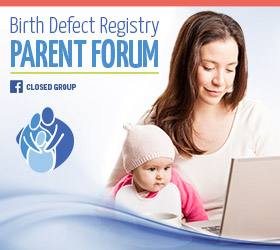What is Asthma?
Asthma is a respiratory disorder that results in shortness of breath, wheezing and coughing. It can range from a mild illness to a severe, life-threatening disease.
How Many Children Have Asthma?
Asthma is a leading cause of childhood illness, affecting over 10% of the children in the U.S. Twice as many boys as girls have asthma. Half of all childhood asthma begins before age three.
How Do You Know If Your Child Has Asthma?
Symptoms of childhood asthma may include:
- shortness of breath
- wheezing (a whistling sound made when air is pushed through narrow breathing passages during an asthma attack)
- congestion and a feeling of tightness in the chest
- recurrent bronchitis or pneumonia
- difficulty breathing after exercise
- repeated attacks of severe vomiting
What Causes Asthma?
Asthma is caused by an inborn imbalance in the chemical system that controls proper lung function. One or more environmental factors may trigger this imbalance to cause an asthma attack.
Environmental triggers for asthma:
- Allergies: Sensitivity to molds, pollens, grasses, pets and foods, also food additives and some drugs.
- Infections: Viral or bacterial infections that cause airways to become inflamed or clogged with mucus.
- Exercise: Rapid breathing during sustained exercise.
- Airborne Irritants: Cigarette smoke, dust, household chemicals, auto exhaust, perfumes, air pollution, etc.
- Stress: Asthma is not caused by emotions, but an asthma attack can be triggered by severe stress.
- Reflux: Regurgitation of digestive fluid after meals (more common in adults than children).
Diagnosing Childhood Asthma
Since asthma can be confused with other childhood illness like croup, heart disease and cystic fibrosis, it is important to get a medical evaluation when you suspect your child may have a problem.
Family Physician/Pediatrician: Your child’s regular doctor can help you diagnose childhood asthma. After the medical work-up, your doctor may send you to a specialist for additional testing.
Allergist: An allergist uses skin and blood tests to find out whether your child’s asthma is triggered by reactions to pollens, molds, grasses, pets, foods or other substances. Special diets may be prescribed for food allergies.
Pulmonary Specialist: A child who has asthma attacks that are becoming more frequent and severe may need to be under the care of a doctor who specializes in lung disease.
How Can You Help A Child With Asthma?
Allergy Treatment: If your child’s asthma is triggered by allergies, your doctor may suggest “allergy shots” to help reduce your child’s sensitivity. If foods are a problem, special elimination diets may be helpful.
Medications: Most asthma in children can be successfully controlled with medications. Your doctor may prescribe drugs like theophylline, chromolyn sodium, ventilators (Proventil or Ventolen) and other medications.
Exercise: Physical activity is an important part of every child’s life. Since certain kinds of exercise can trigger asthma attacks in some children, you will need to help your child pick activities that allow sufficient rest time between bursts of activity – baseball, golf, bowling, volleyball, tennis, short sprints and swimming. There are even summer camps that plan activities geared to the special needs of the child with asthma.
Environmental Controls: Your child’s room should be a sparkling clean oasis. Keep dust, mold, clutter, furry stuffed animals, nappy rugs and pets out of the bedroom. An air-filtration system may be helpful.
Education: Asthma is a leading cause of school absences. Talk with your child’s teacher about preparing for unexpected absences and arranging makeup work.
Relaxation: Teach your child how to avoid stress by learning to plan for schoolwork and special events. It is also important for children to have some free unstructured time to just “be themselves.”
Can Childhood Asthma Be Prevented?
Although asthma cannot be prevented, it can usually be successfully treated. The best news is that with good care, two-thirds of all youngsters will outgrow their childhood asthma by the time they are teenagers.
Fact Sheet by:
Birth Defect Research Children, Inc.
www.birthdefects.org







